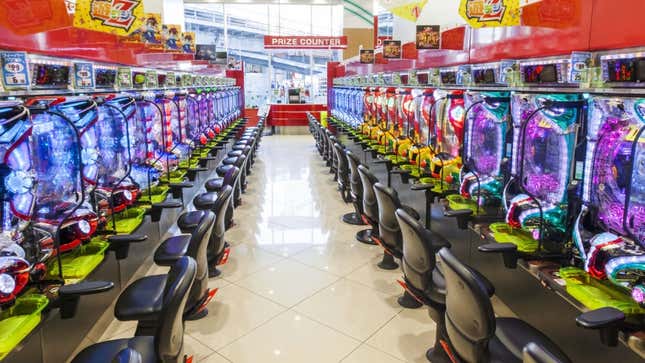
Japan’s pachinko industry, a bulwark in the country’s amusement industry, has been hit hard during the pandemic.
According to pachinko news site Green Belt, nearly 640 pachinko parlors closed in 2021. As of December 2021, there were 7,637 pachinko parlors affiliated with the Japan Amusement Business Cooperation.
This has also meant fewer machines in operation. Inside Asian Gaming reported in April 2021 that the number of installed pachinko machines was 3,608,838, which was a decrease of 226,145 machines from a year earlier.
Pachinko was first developed in the years before World War II. In the post-war era, it exploded in popularity. Later, video game companies like Konami churned out pachisuro (“pachinko slot”) machines, with characters from their iconic games like Metal Gear Solid. In pachinko, players try to win metal balls, which they can then trade in for prizes, which can then be resold at another shop just outside the parlor.
Obviously, Covid-19 has impacted Japan’s amusement industry. Lockdowns caused parlors to shutter temporarily. New variants, no doubt, have driven away customers. According to Shintaro Kamimura of Inside Asian Gaming, “The Covid-19 pandemic has worsened this trend with not only small to medium-sized halls closing but also major industry players.”
Sega Sammy Holdings, which was formed after Sega merged with pachinko company Sammy, has seen “extraordinary” financial losses during the pandemic, and asked 650 of its employees to retire voluntarily. The impact is felt even outside the parlors. Late last week, Sega sold off the remaining shares of its non-pachinko arcade business.
But it’s not just the pandemic that has hurt pachinko. As Nico Nico News points out, smoking bans at pachinko parlors and the creation of small smoking rooms might have also driven customers, who smoke, away.
There are some bright spots, Nico Nico News notes. Ten new pachinko parlors opened in December, so perhaps the Japanese amusement industry is on the rebound. But is that enough to overcome the losses?